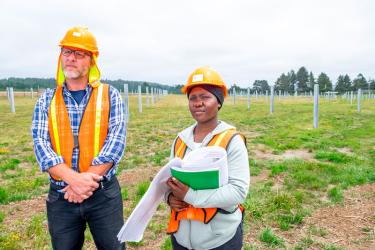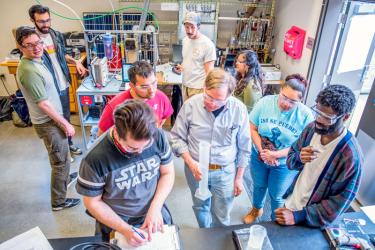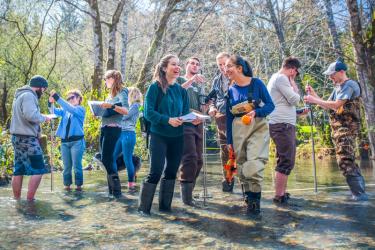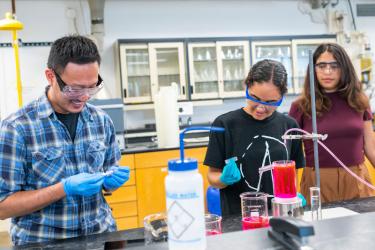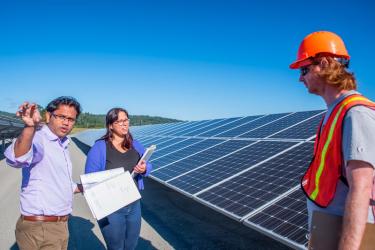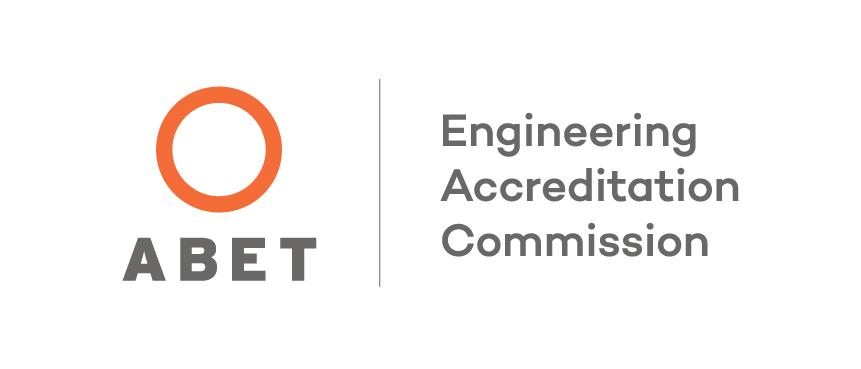Mechanical Engineering
Mechanical Engineering is an evolving discipline that adapts to the current needs of society. Mechanical engineers design, develop, build, and test mechanical and thermal systems, sensors, and devices.
Why this program?
Diverse Faculty
Our faculty is made up of people from diverse backgrounds and interests, giving students a broad array of experience and knowledge with a focus on social and environmental justice.
High Demand Skillset
Mechanical engineering is a very diverse skillset, in high demand across many economic sectors, including aerospace, automotive, chemical, computer technology, construction, electronics, research and development, robotics, and more.
Graduate School Ready
Our students are primed for success in graduate school settings, having gained a broad understanding of engineering concepts and real world experience.
Academics & Options
In the first two years, all students in the School of Engineering who are interested in Environmental Resources, Energy Systems, or Mechanical Engineering will take a core set of foundational courses together. These fundamentals provide a well-rounded basis in natural sciences, humanities, math, computational science, data analysis, and engineering design.
At the upper division, students will choose a major pathway and complete specialty engineering courses that go deep in that area of expertise. These courses take a project-based and interdisciplinary approach.
Mechanical Engineering is one of the most versatile engineering degrees and can encompass a focus across a wide range of topics, including environmental sensor design, air pollution control, sustainable power systems design, mechanical and electro-mechanical machine design, fluid handling systems, thermal systems, energy conversion, HVAC and building systems design, and food processing.
The balanced curriculum covers design of mechanical systems and thermofluids—the two historical core concentrations of mechanical engineering.
Due to the variety of fields relevant to this profession, the undergraduate program covers areas in dynamics, materials, thermal/fluids, vibrations, controls, computer aided engineering, design, and manufacturing.



